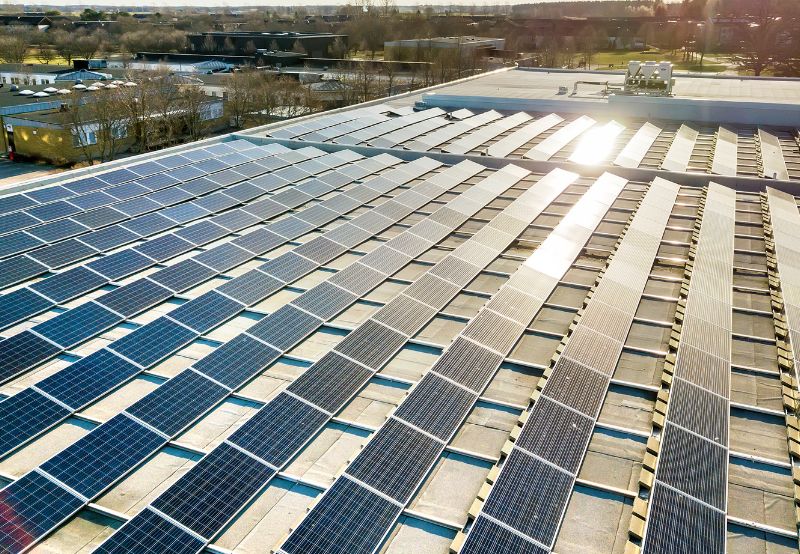
The Jammu and Kashmir administration has greenlit a significant Rs 400 crore initiative to install grid-tied rooftop solar power systems across all government buildings in the region. This decision was taken by the Administrative Council, chaired by Lieutenant Governor Manoj Sinha
. The project will involve installing rooftop solar power systems with an aggregate capacity of 70 MW under Capex mode and an additional 200 MW under RESCO mode.
The Jammu & Kashmir Energy Development Agency (JKEDA) will oversee the implementation of this extensive project. Government buildings will be equipped with rooftop solar systems of varying capacities, leveraging the expansive rooftop spaces of these establishments for solar energy production.
These systems will feature bi-directional smart meters.
The Virtual Net Metering (VNM) benefit will be provided by the DISCOMs, allowing for the adjustment of excess energy generated by solar panels at one site against other electrical connections within the same department.
The project is projected to be completed by the end of December 2025. Following its completion, JKEDA will maintain the solar installations free of charge for five years through empanelled vendors. For the RESCO mode projects, solar power developers will enter into power purchase agreements for a duration of 25 years, with the tariff rates to be determined through a competitive bidding process.
With the implementation of this project, the expected reduction in carbon emissions is estimated to be around 8.3 million tons over a 25-year period, due to the installation of 270 MW of solar power capacity.
Additionally, the project is anticipated to create over 10,800 jobs, encompassing a range of positions for highly skilled, skilled, and unskilled workers.
Moreover, numerous additional job opportunities will arise in secondary and tertiary sectors related to the solar photovoltaic (PV) grid-connected projects, including roles in the manufacturing and supply of system equipment such as inverters, cables, trackers, and other components.
Author Profile

Latest entries
 Representational ImageREGIONALApril 24, 2025Sopore Police refutes fake news on student’s death, Legal action initiated
Representational ImageREGIONALApril 24, 2025Sopore Police refutes fake news on student’s death, Legal action initiated INDIAApril 24, 2025Pahalgam Attack: BSF scales down retreat events at Attari, 2 other locations at Indo-Pak border
INDIAApril 24, 2025Pahalgam Attack: BSF scales down retreat events at Attari, 2 other locations at Indo-Pak border FEATUREDApril 24, 2025Pahalgam tragedy used for clout: Couple’s joyful moment twisted into fake news
FEATUREDApril 24, 2025Pahalgam tragedy used for clout: Couple’s joyful moment twisted into fake news REGIONALApril 24, 2025Cluster university students protest against attacks on Kashmiri students, LG Manoj Sinha expresses concern
REGIONALApril 24, 2025Cluster university students protest against attacks on Kashmiri students, LG Manoj Sinha expresses concern
